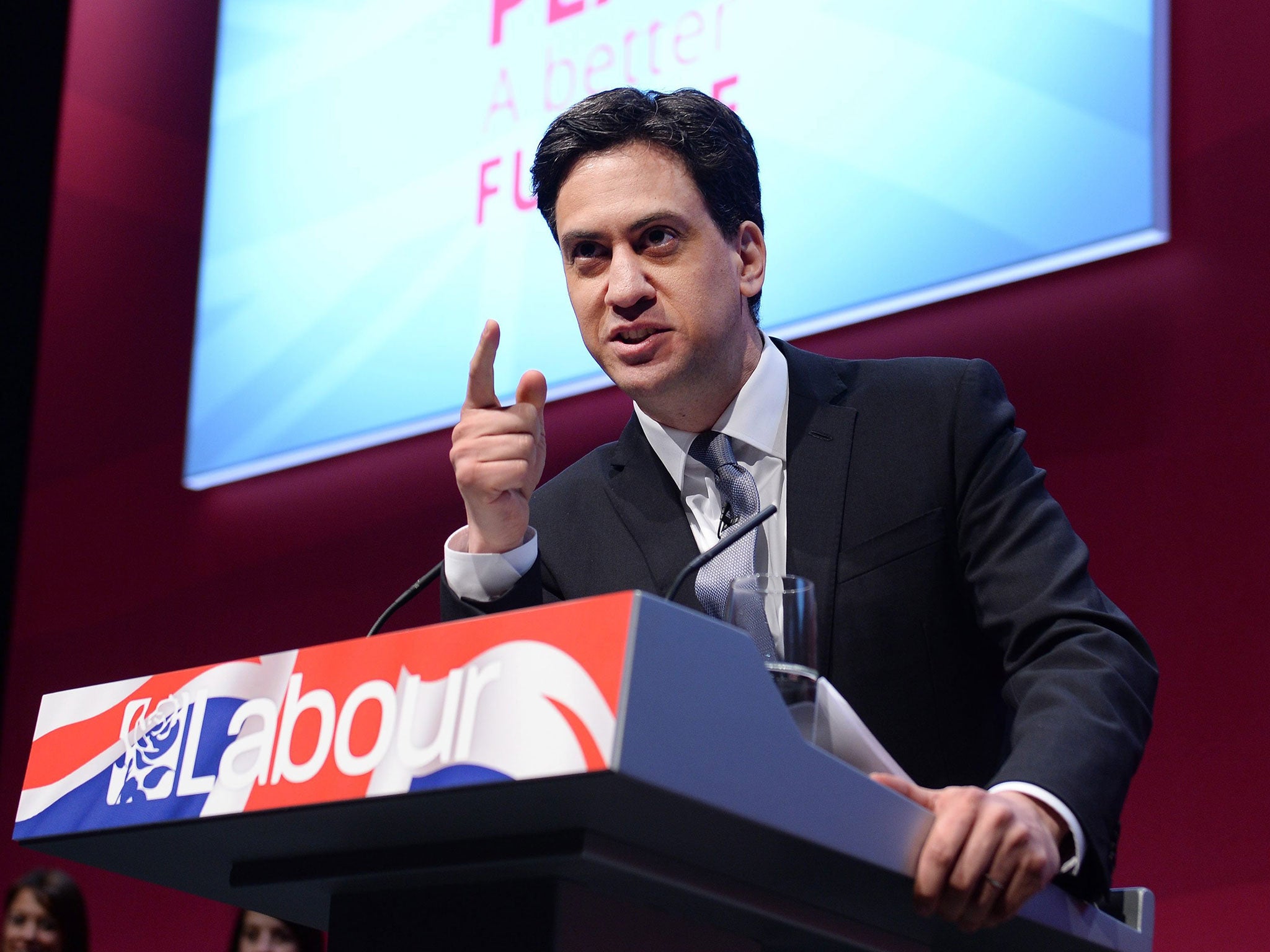Your support helps us to tell the story
From reproductive rights to climate change to Big Tech, The Independent is on the ground when the story is developing. Whether it's investigating the financials of Elon Musk's pro-Trump PAC or producing our latest documentary, 'The A Word', which shines a light on the American women fighting for reproductive rights, we know how important it is to parse out the facts from the messaging.
At such a critical moment in US history, we need reporters on the ground. Your donation allows us to keep sending journalists to speak to both sides of the story.
The Independent is trusted by Americans across the entire political spectrum. And unlike many other quality news outlets, we choose not to lock Americans out of our reporting and analysis with paywalls. We believe quality journalism should be available to everyone, paid for by those who can afford it.
Your support makes all the difference.Ed Miliband is now more likely than David Cameron to be prime minister after the election, according to new bookies’ odds.
The bookmakers’ PaddyPower now has Ed Miliband at 5/6 odds, with David Cameron trailing behind on 10/11.
Despite the Tories failing to open up a sustained lead against Labour, Mr Miliband’s low personal ratings have convinced many watchers that Labour will not win the election.
Labour’s poll ratings have been in front of the Conservatives’ for the vast majority of this parliament, with the two parties now broadly neck-and-neck.
With this in mind, this is the first time during the campaign that Mr Miliband has been seen as the most likely victor after the election.
The bookies also have Mayor of London Boris Johnson in third place at 35/1.
Mr Johnson is standing as an MP at the election and in theory could become leader before a government was formed if David Cameron were to resign.
The SNP are likely to gain a large proportion of Scotland’s seats if local polling in Scotland is replicated on polling day.
The survey results would be unlikely to lead to a majority for either party and would probably leave Labour and the Conservatives roughly neck-and-neck, reliant on support of small parties.

Join our commenting forum
Join thought-provoking conversations, follow other Independent readers and see their replies
Comments